Graham Reid | | 5 min read
Randy Newman: Texas Girl at the Funeral of Her Father
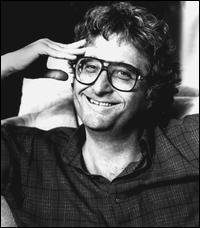
It took only four notes – one introductory bar – of a Randy Newman song, and I knew that I was in for the long haul. The song was Sail Away, and that was over 30 years ago. Since then, my Randy obsession – so to speak – has been percolating and intensifying, depending on what he’s up to and how close I am to a piano.
For me, it’s not just Newman’s acerbic song narratives, or his melancholic melodies. It’s the piano beds that his songs are built on, a marriage of Jewish songwriting from the classic era, and the New Orleans shuffles he heard in his childhood. Harold Arlen (writer of Stormy Weather) in a duet with Allen Toussaint (Mother in Law).
There is also his use of the orchestra, which comes from an upbringing spent on Hollywood sound stages, watching his famous uncles – film music conductors – put the best musicians through their paces, with scores that are drenched in Americana.
Newman has carried all these influences through his work, on his own albums and his soundtracks for films such as Ragtime and Toy Story.
I once saw Newman perform solo in New Orleans. Ten years before Hurricane Katrina, he was greeted as a hero for writing the unofficial state anthem, Louisiana 1927. Towards the end of the performance, just as his lyrics describe, the clouds did indeed come in from the North, and it started to rain. Rain? It bucketed down, like the Mississippi River dropping from the sky. The audience fled, and Newman was left performing to an empty field.
Last year, while writing a Composer of the Week series about Newman for Radio NZ Concert, I flew to Melbourne to finally hear him perform with an orchestra. In the glorious State Theatre, with a 65-piece orchestra, he brought out the rich references in his scores, especially in the film suites of music from Avalon and Maverick. Aaron Copland, shake hands with Max Steiner. In between songs, he was the wittiest commentator, a sit down comedian talking self-deprecatingly about his life and career.
"Short People", he has often said, was “worst kind of hit you can have”: a novelty hit. He’s had a couple of others – I Love LA, It’s Money that Matters – that all seemed to distract from his real work. Aside from Louisiana 1927, hardly known among the wider public are the small, perfectly formed masterpieces – rarely longer than three minutes – that are dotted throughout his recording career, now 45 years and building.
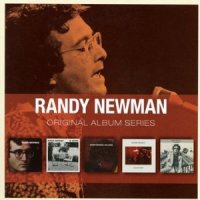 Recently as part of the Warner’s Original Album Series, Newman’s first five, classic albums
have been re-issued as a budget box set: five albums for just $20 in
some outlets (like here).
Recently as part of the Warner’s Original Album Series, Newman’s first five, classic albums
have been re-issued as a budget box set: five albums for just $20 in
some outlets (like here).
It’s like a gift from God, if Newman believed in one.
Like an overture to the series, Newman’s baroque, self-titled debut was lavishly produced by Van Dyke Parks in 1968. It includes the much-covered, wonderfully self-pitying I Think It’s Gonna Rain Today, and the panoramic haiku, Cowboy that is like a Copland soundtrack for a John Ford western.
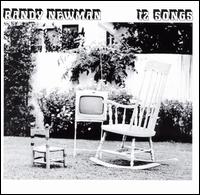 12 Songs (1970) is when Newman hit his
stride, eschewing an orchestra for a small combo of Burbank regulars
led by Ry Cooder.
12 Songs (1970) is when Newman hit his
stride, eschewing an orchestra for a small combo of Burbank regulars
led by Ry Cooder.
The songs include Mama Told Me Not to Come (a hit for Three Dog Night).
Others are on happy subjects such as race relations, creeps and arsonists.
Newman has said that Suzanne, about a stalker, “is not on the same moral plane as Leonard Cohen’s Suzanne.”
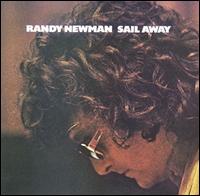 Sail Away (1972) saw Newman orchestrate
one his own albums for the first time, and it compiled songs that he
had been working on for some years, including Lonely at the Top (originally written for Sinatra, but rejected – Frank thought
people might take it seriously), Simon Smith and the Amazing
Dancing Bear (covered by Alan Price), and the bump-and-grind
burlesque You Can Leave Your Hat On (a hit for both Tom Jones
and Joe Cocker).
Sail Away (1972) saw Newman orchestrate
one his own albums for the first time, and it compiled songs that he
had been working on for some years, including Lonely at the Top (originally written for Sinatra, but rejected – Frank thought
people might take it seriously), Simon Smith and the Amazing
Dancing Bear (covered by Alan Price), and the bump-and-grind
burlesque You Can Leave Your Hat On (a hit for both Tom Jones
and Joe Cocker).
But the real depth is in the title song, about the slave trade, and a three-song suite for atheists (God’s Song, He Gives Us All His Love, Old Man). “There’ll be no god to comfort you,” a son says to his dying father, “You told us not to believe that lie.”
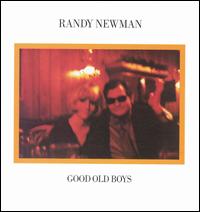 Good Old Boys (1974) is the best kind
of concept album: almost accidental.
Good Old Boys (1974) is the best kind
of concept album: almost accidental.
It’s Newman’s treatise on the American South, where his mother was born.
Also inspired by a biography of the New Orleans demagogue politician, Huey P Long, it contains empathetic portraits of freaks and misanthropes.
And there ares exquisite ballads such as Marie and Louisiana 1927.
Little Criminals (1977) contained Newman’s biggest hit, Short People (“They got no reason to live”), and the furore around that song obscured more sensitive gems such as Texas Girl at the Funeral of Her Father, Baltimore (covered by Nina Simone) and Jolly Coppers on Parade.
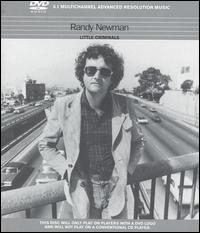 When it comes to albums of his own
songs, Newman has never been prolific: after 1988’s Land of Dreams
– on which he wrote autobiographically for the first time – it
was 11 years before Bad Love, and then another nine before Harps &
Angels.
When it comes to albums of his own
songs, Newman has never been prolific: after 1988’s Land of Dreams
– on which he wrote autobiographically for the first time – it
was 11 years before Bad Love, and then another nine before Harps &
Angels.
While some songs show the influence of his brief foray into musicals, 1995’s Faust, the production and arrangements are some of the best of his career.
(If I have played some small part in this, detailed here, then I’m happy to take the credit.)
I Miss You especially stands out as a discreet tour de force: a revealing insight into the human cost of songwriting, written to his first wife (Newman sings, “You must be laughing yourself sick”).
Getting those first five albums for one green note is an extraordinary bargain.
But in recent years Newman has been exploring his back catalogue, solo at the piano, in two volumes of The Randy Newman Songbook. Both are recommended, though for me the full Newman needs an orchestra; he can been seen performing with a string ensemble (sadly, few reeds and no brass) in last year’s DVD Randy Newman in London.
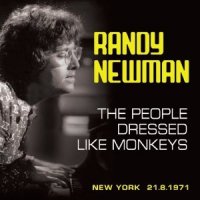 The recent release, The People Dressed
Like Monkeys, is surely unauthorised: these two concerts from 1971
and 1972 have been better presented as bootlegs.
The recent release, The People Dressed
Like Monkeys, is surely unauthorised: these two concerts from 1971
and 1972 have been better presented as bootlegs.
The sound is so murky, it’s like he’s singing underwater: somewhere from deep beneath the muddy Mississippi or the toxic Gulf Coast.
Newman’s perfectionism is best heard recorded in the historic studios of Hollywood.
Chris Bourke in a Wellington broadcaster and writer who wrote Something So Strong, a biography of Crowdd House, and Blue Smoke; The Lost Dawn of New Zealand Popular Music 1918 - 1964 which won the New Zealand Post Book of the Year award in 2011. His website is here.
Other Voices Other Rooms is an opportunity for Elsewhere readers to contribute their ideas, passions, interests and opinions about whatever takes their fancy. Elsewhere welcomes travel stories, think pieces, essays about readers' research or hobbies etc etc. Nail it in 1000 words of fewer and contact graham.reid@elsewhere.co.nz.
See here for previous contributors' work.

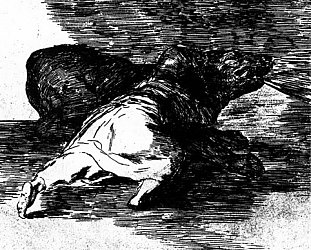
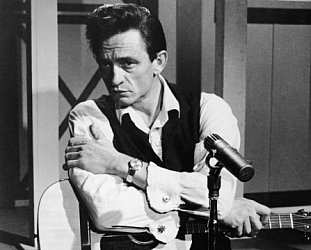
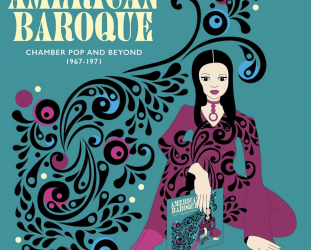

Patrick - May 16, 2012
Sail Away: The first time I heard that song and album was in a house in Katoomba, Blue Mountains, in the summer of 1974. It was a landmark moment and it made me a lifelong Newman fan. Political Science, Lonely at the Top, God's Song and, of course You Can Leave Your Hat On ... acute, succinct, acerbic, funny, and great tunes to boot! A genius and a treasure - amazing he hasn't been assassinated.
Savepost a comment